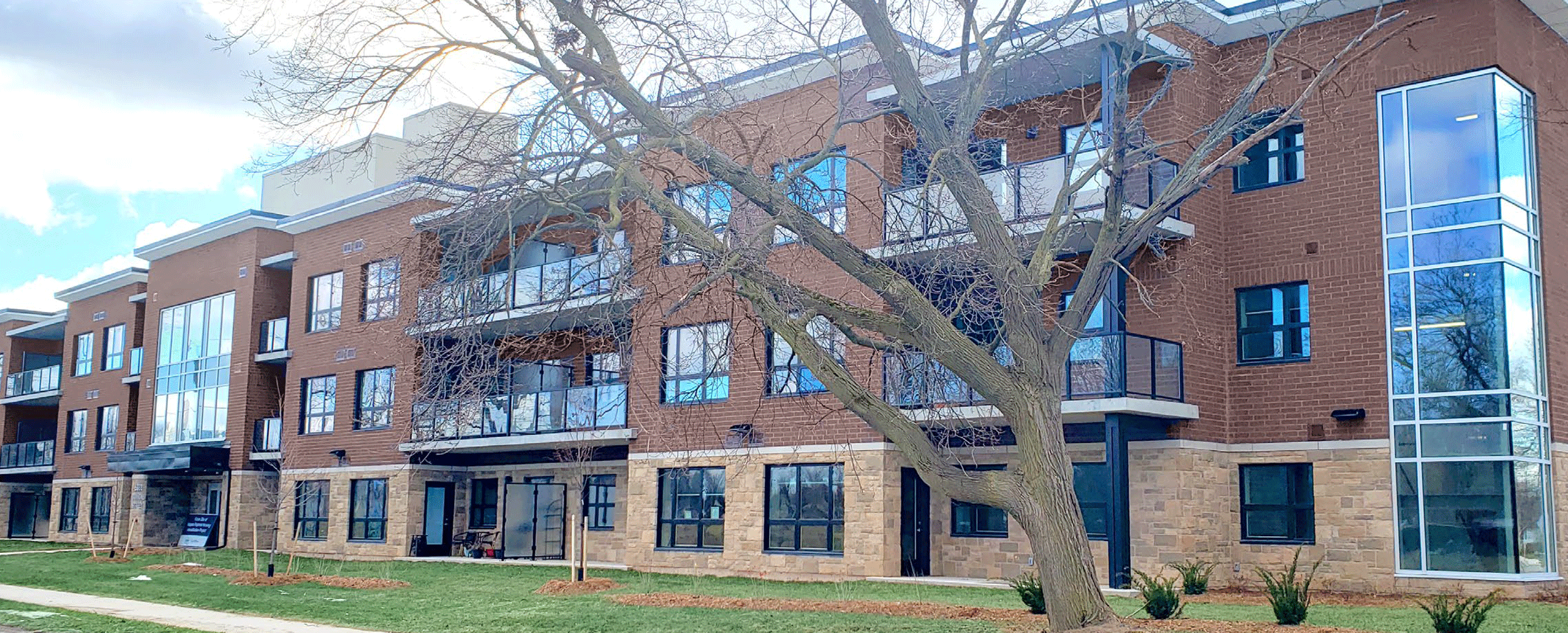Collaboration is key for sustainable affordable housing
To address the housing crisis, Niagara Regional Housing is partnering to build sustainable solutions.
Highlights
-
During the full-day Savings by Design workshop, project teams were able to compare the energy use of different design options.
-
They replaced a row of aging detached homes with 73 affordable multifamily units.
-
By implementing energy-saving enhancements, the building surpassed Ontario Building Code requirements by 21 percent.
Results
21.0%
Projected annual energy savings
29.9%
Projected annual natural gas savings
29,178 kg CO2e
Projected greenhouse gas (GHG) reduction

With significant population growth, rising costs of living and more homeless and vulnerable residents, Niagara Region is experiencing many of the same housing pressures as municipalities Canada-wide.
As part of their Housing Intensification project in Niagara Falls, they replaced a row of aging detached homes with 73 affordable multifamily units. To optimize energy performance, they collaborated with sustainable building experts from the Savings by Design program.
Comparing options with experts
During the all-day integrated design workshop provided by the Savings by Design program, Niagara Regional Housing and their project team compared the energy use of different design options. Experts provided energy modelling and presented recommendations for improvements to the building envelope, mechanical systems, lighting and more. By implementing energy-saving enhancements, the buildings surpassed Ontario Building Code energy-efficiency requirements by 21 percent.
“The workshop was our primary driver for participating,” said Gord Szaszi, Project Manager, Housing Development. “It helps identify a pathway to achieve the energy performance required by funding streams such as CMHC.”
“The financial incentive provided for the design team to attend the workshop also really helped, as they cover part of the architect’s fee.”
Prioritizing sustainability and affordability
Today, sustainability is being built into many policies for housing projects. Energy efficiency can help buildings lower operating costs and carbon emissions while keeping rents affordable and residents comfortable.
“For our HVAC system, we ended up going with a four-pipe boiler and chiller system as opposed to a traditional two-pipe system,” explained Gord. “It does cost more up front, but it has better long-term payoff and it’s better for residents’ quality of life.”
“Financial benefits of the Savings by Design program—capital incentives and reduced operating costs through energy efficiency—have helped our project achieve its high affordability levels.”
Gord Szaszi,
Project Manager, Housing Development









